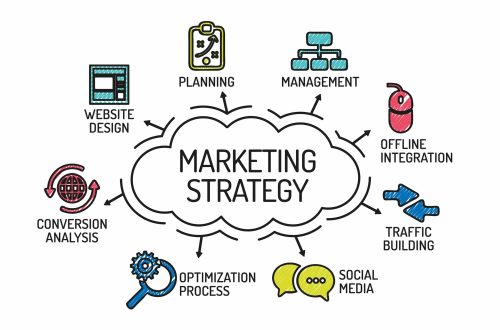Search Engine Optimization (SEO) has long been a cornerstone of digital marketing, driving organic traffic to websites and increasing visibility. Traditionally, effective SEO strategies have required significant investment in time, money, and expertise. However, with the advent of Artificial Intelligence (AI), the landscape of SEO is transforming. AI is making SEO more efficient, effective, and, importantly, cheaper. Here’s how.
1. Automating Keyword Research
Keyword research is a foundational aspect of SEO, traditionally involving extensive manual analysis and the use of various tools to find the right keywords to target. AI-powered tools like Ahrefs, SEMrush, and Google’s BERT algorithm can automate much of this process. These tools use AI to analyze vast amounts of search data, predict trends, and identify the most effective keywords quickly. By automating keyword research, businesses can save significant amounts of time and reduce the need for specialized personnel, thereby cutting costs.
2. Content Creation and Optimization
Creating and optimizing content is another critical component of SEO. AI-powered content generation tools such as GPT-4 can produce high-quality articles, blog posts, and other content forms that are optimized for SEO. These tools analyze existing high-ranking content to understand what works and generate similar content that can perform well in search engine rankings. Additionally, AI tools like SurferSEO and Clearscope help optimize existing content by providing data-driven suggestions on keyword usage, content structure, and readability. This reduces the time and effort required for content creation and optimization, making the process more cost-effective.
3. Advanced Data Analysis
Effective SEO requires continuous monitoring and analysis of data to understand what strategies are working and where improvements are needed. AI excels at processing and analyzing large datasets quickly and accurately. Tools like Google Analytics and Moz incorporate AI to provide insights into user behavior, traffic patterns, and conversion rates. These insights help businesses make informed decisions without the need for a large team of data analysts. AI’s ability to automate data analysis reduces the labor costs associated with traditional methods and allows for quicker adjustments to SEO strategies.
4. Personalized User Experience
Search engines are increasingly prioritizing user experience (UX) as a ranking factor. AI enables businesses to create personalized user experiences by analyzing user behavior and preferences. Tools like Dynamic Yield and Optimizely use AI to deliver personalized content and recommendations to users, enhancing their experience and increasing engagement. Improved UX can lead to higher search rankings and better conversion rates. By leveraging AI for personalization, businesses can achieve these results without significant investment in manual UX design and testing.
5. Link Building and Outreach
Link building remains a crucial element of SEO, but it can be time-consuming and expensive. AI is revolutionizing this aspect by automating the process of identifying high-quality link opportunities and managing outreach campaigns. Tools like Pitchbox and BuzzStream use AI to analyze potential link sources, evaluate their authority, and personalize outreach messages. Automating link building reduces the need for extensive manual research and follow-ups, thus cutting down on labor costs.
6. SEO Audits and Technical Optimization
Regular SEO audits are necessary to identify and fix issues that could affect a website’s performance. AI-powered tools like DeepCrawl and Screaming Frog can perform comprehensive SEO audits quickly, identifying technical issues such as broken links, duplicate content, and site speed problems. These tools provide actionable insights that help businesses address issues without the need for a full-time technical SEO expert. By automating audits and technical optimizations, AI reduces the costs associated with maintaining a healthy and optimized website.
7. Voice Search Optimization
With the growing popularity of voice search, optimizing for this trend is becoming increasingly important. AI tools can analyze voice search data and provide insights into how people are using voice to search for information. This allows businesses to adapt their SEO strategies to include more natural language queries and long-tail keywords. Optimizing for voice search can be complex, but AI simplifies the process, making it more accessible and affordable for businesses of all sizes.
8. Predictive Analysis and Trend Identification
AI’s ability to predict trends and changes in search engine algorithms is another cost-saving benefit. By analyzing historical data and current trends, AI tools can forecast changes in user behavior and search engine algorithms. This allows businesses to proactively adjust their SEO strategies, avoiding costly disruptions. Tools like MarketMuse and BrightEdge use AI to provide predictive insights, helping businesses stay ahead of the curve and maintain their competitive edge without incurring high costs.
Conclusion
AI is fundamentally transforming the field of SEO, making it more efficient and cost-effective. By automating labor-intensive tasks, providing advanced data analysis, and enabling personalized user experiences, AI reduces the need for extensive manual labor and specialized expertise. As a result, businesses can achieve effective, cheap SEO at a fraction of the traditional cost, leveling the playing field and allowing even smaller businesses to compete in the digital marketplace. The integration of AI in SEO is not just a trend but a significant shift that promises to continue delivering cost-saving benefits for years to come.





